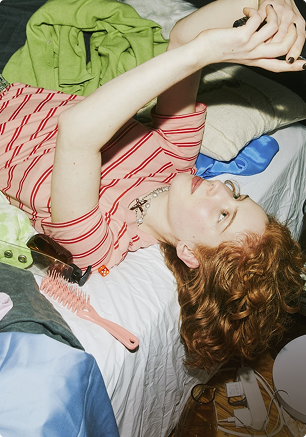

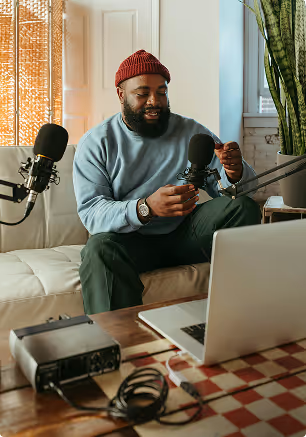
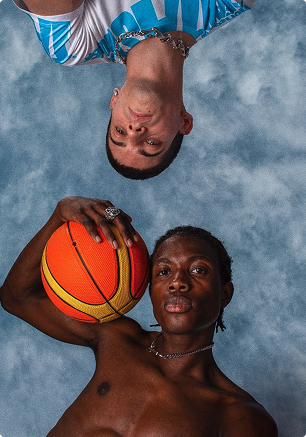




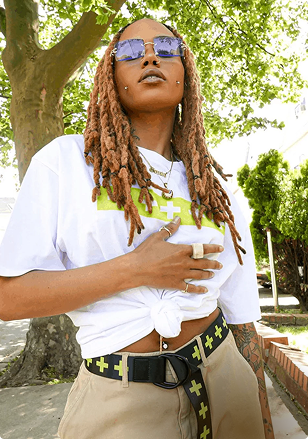

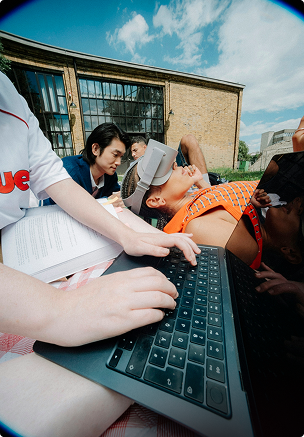

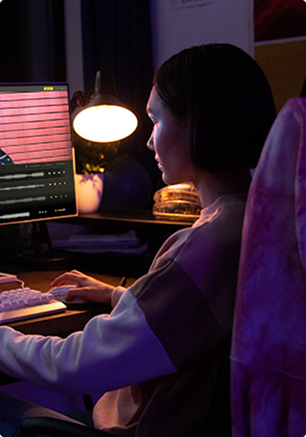

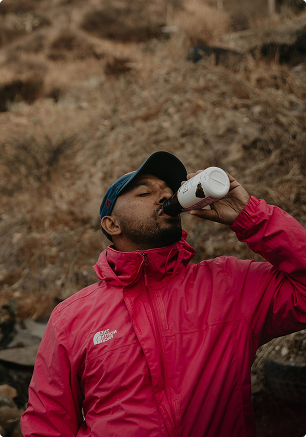
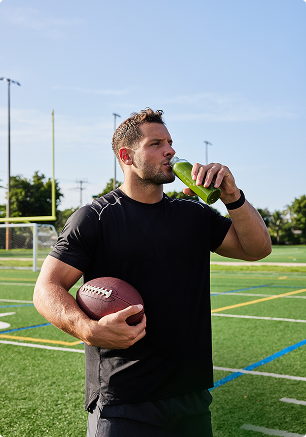

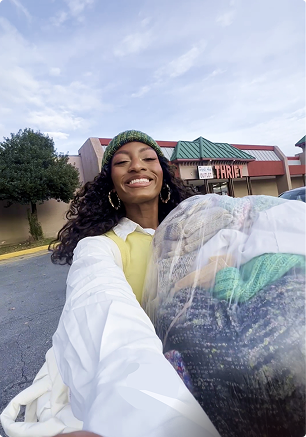
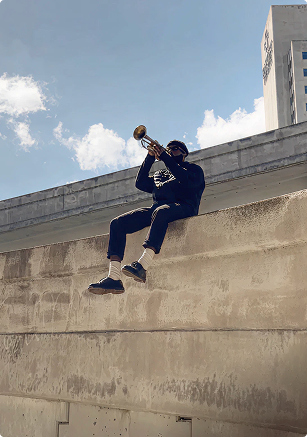
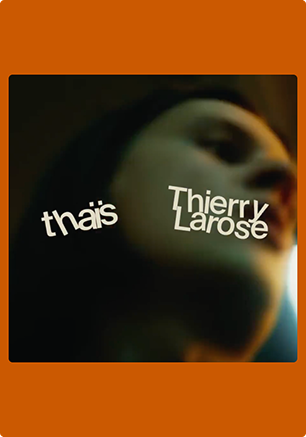
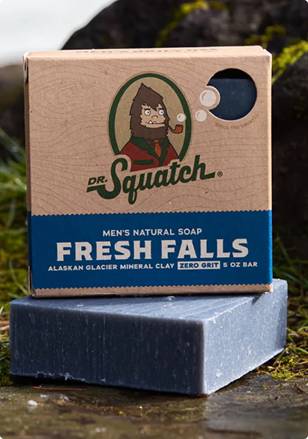

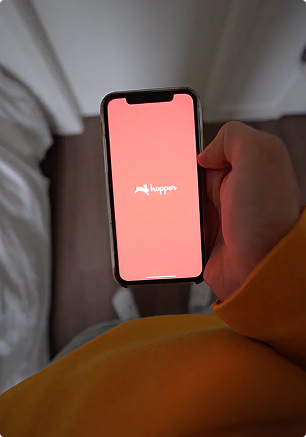
No matter what business you’re in, marketing means everything. To get the right marketing, you need to partner with the right agency. But what type of agency should you go with?
One study found that almost 47% of brands stick with big-name holding-company agencies. But nearly the same number of companies choose boutique agencies for their flexibility.
In other words, there is no one-size-fits-all answer.
Your agency decision directly impacts both creative results and financial performance. Understanding the strengths and weaknesses of boutique and enterprise agencies will help you make the right call.
Choosing the wrong agency can stall growth, waste resources, and dilute your brand’s impact. But the right partner can turn strategy into standout creative and measurable results.
At Fieldtrip, we integrate strategy, creative, media, and measurement to deliver work that drives results. Our projects span brand development, digital experiences, and campaigns. Every action is tailored to elevate your brand’s vision.
Want to find the best fit for your company? Keep reading.
Expert tip: Match the agency’s strengths to your immediate goals. If speed, flexibility, and niche expertise matter most, an enterprise agency gives you the results and guidance you need. Here’s an RFP template you can use to see if they fit.
Your choice of agency can make or break marketing performance.
The wrong one costs you time and money. The right one integrates with your team to deliver faster, smarter, and more effective marketing.
Many business leaders we work with tell us they don’t want an agency that just checks boxes. They want a partner who contributes ideas, adapts to shifting market conditions, and helps shape strategy.
Someone who can genuinely conduct marketing transformation.
The challenge is finding that partner.
The first step is to decide whether you want to work with a boutique agency or an enterprise agency. Both have their pros and cons.
Many people believe that bigger is better. And there are benefits.
An enterprise agency can manage sprawling campaigns across PPC advertising, public relations, and web development. You get backing from a company with global resources and vast expertise.
A good example here is our work for 7-Eleven. We drove a nationwide in-store influencer activation program for them. As a result, we increased foot traffic and visibility significantly.
.webp)
And we designed full-event branding for MMXX:
.webp)
Another good example of how a big agency works was when VaynerMedia teamed up with Mountain Dew. VaynerMedia developed the "Berry Spark" campaign for Mountain Dew, targeting millennial parents with content that resonated with their lifestyle and challenges. The campaign increased engagement and reinforced the brand’s relevance with a key audience.

But size isn’t always everything when it comes to clever marketing.
A boutique digital agency can bring sharper expertise in areas like conversion optimization, social media management, or video production. You get personalized strategies developed by a small team you actually know by name.
Here’s an example of how a boutique agency can shine:
When our sister agency inBeat worked with the travel app Hopper on micro-influencer activations, our campaign was able to deliver a 67% lower cost-per-install compared to traditional paid channels. Hopper got a lot more users for every marketing dollar spent.
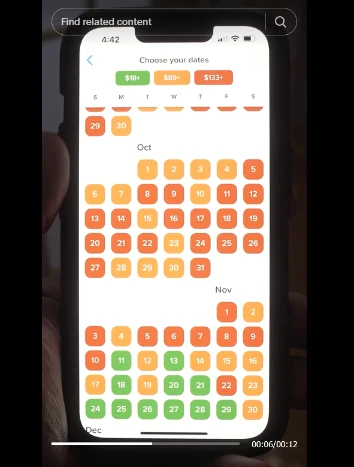
An enterprise agency like Fieldtrip also has some solid advantages, though.
They’ve got bigger teams, so they can move fast and handle a lot at once, from paid ads and SEO to UX and creative. If you’re running large campaigns or launching across multiple markets, that kind of support really helps.
They’re also great if you need specialists in different areas, especially for multilingual campaigns. Basically, you get everything in one place, which saves time and avoids confusion.
Insider tip: If you’re comparing proposals, don’t just ask for projected impressions or clicks. Ask how the agency tracks key metrics like cost-per-acquisition, conversion rate, and time-to-launch. In our own campaigns, those three numbers tell you more about an agency’s fit than any pitch deck ever could.
An agency should be more than execution on ads, design, or email marketing. A strong partner helps you refine positioning, spot opportunities in social media, and make smart bets on content creation or influencer collaborations.
We’ve seen companies accelerate growth when they treat their agency like a partner who brings market intelligence, not just deliverables.
And Fortune 500 full-service marketing agencies can do that for you.
Even better: investing in the right agency costs less than building the same capabilities in-house. You get expertise, speed, and scale without the overhead. A good agency can make every marketing dollar go further.
In fact, a 2024 Deloitte survey found that 63% of small businesses saved up to 30% on marketing costs by outsourcing.
Here’s a quick look at how in-house teams stack up against agencies in cost, scale, and expertise:
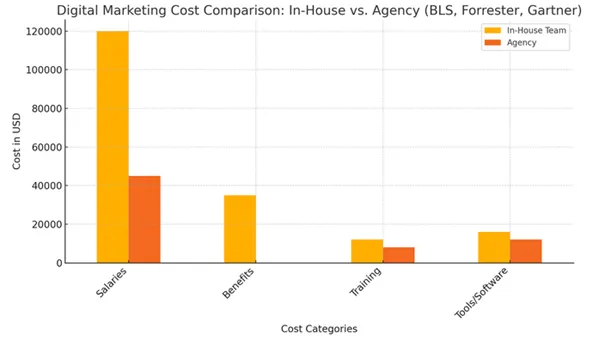
Marketing has never been more complex. Brands must balance Google Ads, SEO, email, video, and UX while AI, privacy rules, and global competition keep the ground shifting.
The right marketing agency can simplify complexity, drive better outcomes, and protect your marketing investment.
The wrong agency will drain your resources and can even irreparably damage your brand.
Every decision matters because even small inefficiencies can have a huge impact on performance.
Research shows the average conversion rate across industries is just 2.9%, with form fills at 1.7% and calls at 1.2%. You want to be way above those averages.
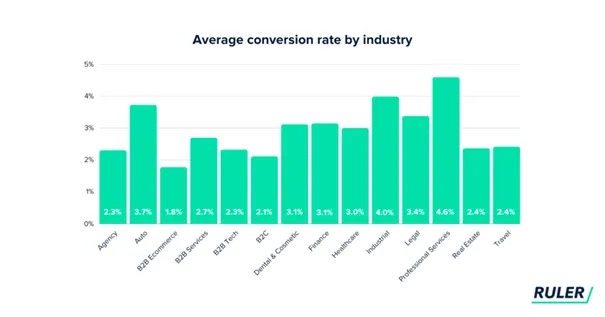
Finding the right agency is the key to transforming marketing challenges into business results.
Your agency should align with your speed, goals, and growth objectives. A strong partner accelerates impact while protecting your brand.
Let’s get into the details and see what the differences between the big players and the feisty up-and-comers really are.
A boutique digital marketing agency is usually small, specialized, and highly personalized. Many are led by founders still involved in day-to-day client work. They tend to excel in areas like content marketing, social media management, and lead generation for niche markets.
The precision and agility of a boutique agency can bring in good results.
Boutique agencies are better able to move quickly to capture growth opportunities in a lot of cases. Like in the influencer market, for example, which is now expected to grow at a CAGR of 13.6% through to 2033.
Influencer marketing delivered a 53% lower CPM than typical digital advertising in 2024.
That’s a whole lot of marketing opportunities that you want to move on.
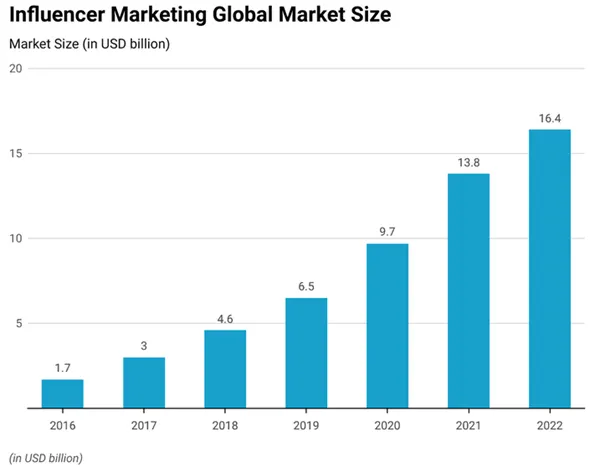
Boutique agencies excel at influencer marketing because they combine agility, creativity, and deep knowledge of niche audiences. They can craft campaigns for specific communities and build authentic relationships with influencers, too.
And if they’re smart enough to focus on precision and measurable outcomes, they can deliver higher impact than broad, one-size-fits-all approaches.
Here’s how it can work in practice:
inBeat’s campaign with the haircare brand Prose resulted in over 500 pieces of influencer content that fueled paid campaigns at scale.
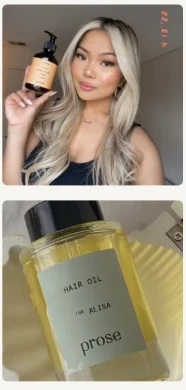
Unlike the fast-moving featherweight boutique agencies, an enterprise agency is more like a heavyweight fighter. They have structured teams, multiple departments, and typically a global reach.
A big agency can handle digital strategy, PR, web development, PPC, and more, all under one roof. For corporations managing messaging across countries or operating in compliance-heavy industries like finance, this scale matters.
But the massive size of an enterprise agency can also slow them down. In our experience working with Fortune-500 level companies, that’s not usually a problem.
Nobody at this level expects a campaign launch in 7 days.
So, which fighter should you have in your corner? The noble featherweight or the imposing heavyweight?
Let’s see how they stack up.
Agencies operate very differently in how they structure teams, handle approvals, and communicate with clients.
Boutique agencies like inBeat, Blue Things, and Content Allies work with smaller, cross-functional teams. The slimmed-down size allows for faster adjustments and gives you direct access to decision-makers. This makes it easier to test new ideas and refine campaigns quickly.
Enterprise agencies rely on structured processes and multiple layers of approval. This provides consistency and scale but can mean that changes happen slowly (unless you choose the right agency).
Choosing the right approach depends on whether speed, flexibility, or broader infrastructure is the priority.
Don’t get stuck with a generic campaign that misses the mark for your brand.
Enterprise agencies have proficient, niche teams under one roof that focus on very specific areas of expertise. They can help you reach your target audience more effectively without inflating your marketing spend.
Pro tip: That’s why we at Fieldtrip, operate in tight, independent teams that all follow the same strategy. That way, your projects stay agile and on track, but still benefit from the scale of a larger operation.
One of the biggest advantages of boutique agencies is direct access to senior leadership.
You don’t have to wait for account managers to relay messages.
You get expert advice and action in real time.
Enterprise agencies, by contrast, rely on structured processes, multiple approvals, and longer feedback loops. This provides stability, but it can slow down adjustments when timing is critical.
After all, a knockout punch has to be timed just right.
That’s also what sets Fieldtrip apart. We’re built to stay nimble even at scale. Whether you need a full team or just a sharp slice of one, we plug in exactly where it matters. Strategy, creative, and media are all connected, but each part is designed to run on its own or integrate with your in-house team. You get the agility of a boutique, without giving up the muscle of a larger agency.
The figures back up the importance of agility. 54% of respondents to an industry survey said responsiveness is a key factor in choosing an agency.
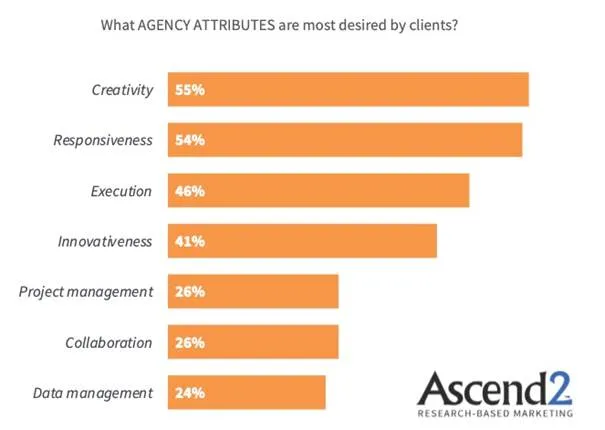
Boutique teams are usually small, and team members wear multiple hats. This creates agility and allows for fast decision-making, though it can mean fewer backups if someone is unavailable.
Bottlenecks are the least of your worries; if you need more niche specialization in different areas connected by the same strategy, you will be out of luck.
For businesses with limited budgets, working with a boutique team delivers more focused, hands-on attention.
But if you have an enterprise-level brand, you may need a different kind of approach.
Enterprise agencies have larger, specialized teams covering everything from UX design to web development and content creation. They can handle large-scale, multi-market campaigns with ease, but they come with more rigid workflows and slower responsiveness.
Of course, as we explained above, that’s Fieldtrip’s advantage: blending the best of both worlds via a shared strategy.
Boutique agencies move fast. If a social media campaign isn’t performing as expected, a boutique team can pivot to influencer activations or other tactics in days.
Enterprise agencies require approvals across departments. They also have more corporate clients running large campaigns.
This makes them slow to respond to fast-moving events. When timing and trends matter, being flexible and agile can give your business a serious edge.
And again, that’s where Fieldtrip’s mixed business model shines.
Large agencies usually operate in silos, which slows everything down. Creative is in one corner, media in another, and strategy somewhere else: ideas get stuck, and decisions take longer.
At Fieldtrip, we skip that.
Our teams are small and fully autonomous, but still tightly connected. Creative, media, and strategy sit side by side, so ideas move faster, data gets shared instantly, and campaigns stay aligned from day one.
That’s how we, for example, scaled Nestle’s performance creative with UGC and paid ads in record time:

Working with a boutique agency usually comes with lower retainers, but high ROI through creativity and fast execution.
Enterprise agencies can charge higher fees but provide value through scale and detailed reporting infrastructure.
Influencer campaigns, for example, can cost between $10 and $100 per nano influencer post, and up to $500 per micro influencer post. Even if you add the agency’s costs, boutique companies will charge a lower fee.
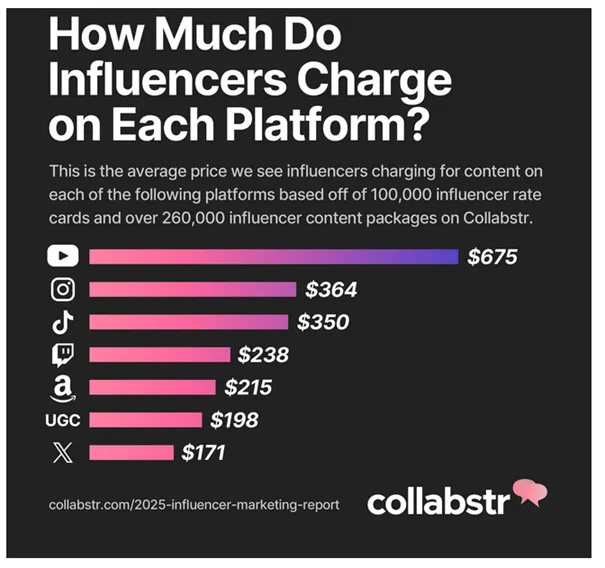
Enterprise agencies can run influencer campaigns at scale and ensure consistent messaging across massive markets, but at a higher cost and slower pace.
Besides, enterprise-level agencies can offer other kinds of services that boutique agencies cannot. For example, smaller agencies don’t have the same network and know-how as out-of-home advertising agencies for enterprise.
This highlights the trade-off:
How do you make the right choice?
It all comes down to your priorities (unless you want to choose the perfect middle ground: Fieldtrip). That brings us to the next point:
Boutique agencies work best for businesses that need hands-on support, specialized expertise, and fast execution.
Boutique agencies excel in highly specialized industries where generic strategies fall short. They offer deep expertise and design campaigns that connect with targeted audiences, so you can establish authority in their niche.
Boutique partners focus on innovative, practical solutions for specific challenges and give you the kind of personalized attention that maximizes ROI. Instead of being diluted across broad channels, your marketing efforts are concentrated where they make the most impact.
Boutique agencies are great for startups and mid-sized businesses because you get direct access to senior leaders. Communication is faster, feedback is immediate, and strategies can adapt as your business grows. That personal touch helps small brands compete with bigger players without getting lost in a big agency.
Boutique teams are built for speed and responsiveness. Small, specialized teams can execute campaigns quickly and adjust to last-minute changes without slowing down. Agile workflows allow for efficient testing and optimization, making campaigns adaptable to trends or time-sensitive launches. Perfect for product launches, seasonal promos, or anything where timing really matters.
The only caveat is that small agencies may not have the specialists for the level of efficient testing and optimization you might need.
At Fieldtrip, for instance, we offer more in-depth measurement and attribution compared to smaller marketing agencies.
Enterprise agencies work best for big-budget projects, complex campaigns, or strict compliance needs. With specialized teams and structured processes, they handle multi-channel, global marketing at scale.
Large campaigns across marketing, PR, digital, and analytics run smoothly when you have structured teams. Multiple departments or global operations stay coordinated, which means your campaigns are on track and aligned with goals.
Going international is easier with the right team. An enterprise agency can keep your brand consistent while adapting to local markets, managing different countries and time zones, and staying on top of regulations.
For Hello Fresh, for example, we created content in 7 European languages, combining creator content with whitelisting on TikTok and Meta.
Companies in highly regulated industries benefit from structured support to ensure compliance and minimize risk. With an enterprise agency, every message can be created and vetted to meet strict regulations. With agencies like Fieldtrip, your brand’s reputation will be protected so you can maintain trust with customers, partners, and regulators.
Bringing creative, media, PR, digital, and analytics under one roof reduces vendor juggling. It keeps your brand voice consistent and makes decision-making for big campaigns much simpler.
Enterprise agencies help brands stand out as industry leaders. They create PR, content, and social campaigns tailored to your voice, building credibility and connecting with the right audience. For niche-focused companies, they create strategies that steadily grow your reputation and influence over time.
Cultural fit matters as much as strategy or budget. It affects how smoothly teams work together, how decisions get made, and whether campaigns feel aligned with your business.
We always advise our clients to pick someone who can adapt to their way of working, communicate clearly, and understand their priorities.
Boutique agencies, for example, can build alignment because smaller teams can adjust quickly and develop trust with clients. This ensures your campaigns are deeply integrated with the brand rather than imposed from the outside.
And since Fieldtrip is built by modular, side-by-side companies, you get that kind of advantage.
The best campaigns come from shared values and aligned workflows. If your team prizes fast iterations and an agency insists on quarterly reviews, it’s a mismatch.
Our collaborations succeed because we act as an embedded partner. If needed, we can adjust strategies on a weekly basis to keep campaigns on track.
Clear expectations prevent slowdowns. Decide upfront on meeting frequency, communication channels, and accountability.
A boutique partner can adapt faster to your reporting needs, but a big agency may have to enforce standardized reporting.
Again, that’s the advantage of working with an agency like Fieldtrip.
An agency should align with your company’s growth roadmap. If you want aggressive lead generation, it should guide both content marketing and email campaigns with that target in mind. If you’re after brand authority, public relations and social media become the focus.
At Fieldtrip, we always deliver. For example, we got Linktree 5x in reach by revamping its social strategy and launching 8 content series.
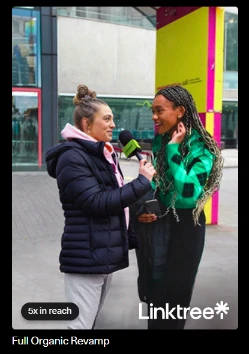
Choosing between a boutique digital agency and a large agency comes down to priorities. Ask yourself: what matters the most for your business?
Consider your budget, whether you need lean agility or full-scale infrastructure. Think about the scope of your campaigns. Are they local, national, or global?
Assess the type of expertise required, whether it’s niche skills like conversion optimization or broad coverage across digital strategy and customer experience.
An agency that matches your working style makes collaboration easier. Experience shows that brands tend to perform better with boutique agencies when speed, flexibility, and specialized expertise are key. Large enterprise agencies are usually a better match when scale, compliance, and integrated services take priority.
Enterprise agencies make sense for scale, compliance, and integrated services. Boutique agencies can provide agility, speed, and specialized expertise.
So why not both?
Fieldtrip combines strategy, creative, media, and performance in one connected team, so nothing gets lost in handoffs. We move fast, adapt to your goals, and focus on delivering real results.
That’s the beauty of being made up of small, fully autonomous but connected companies.
Whether you need help with a big campaign or ongoing support, our nimble, collaborative approach makes it simple to get work that fits with your brand. It also ensures every campaign delivers measurable impact.
If you want a marketing agency that can perform, Fieldtrip is the best choice. Contact us today and see how we can help.
Should small businesses work with a boutique agency?
Yes. Boutique agencies, such as inBeat, Blue Things, and Content Allies provide companies with direct access to strategists, faster campaign pivots, and specialized expertise in areas like influencer marketing.
This works well for businesses that need hands-on support, quick adjustments, and campaigns tailored to their target audience.
Are enterprise agencies better for global campaigns?
Yes. Enterprise agencies have larger teams and structured processes that manage campaigns across multiple regions. They handle complex, integrated strategies well, which is great for large companies aiming a global market.
Can boutique agencies deliver measurable results on a budget?
Yes. Boutique agencies focus on creativity and efficiency to maximize ROI.
inBeat Agency, for instance, runs influencer campaigns that cost 53% less per CPM than traditional paid ads, while still effectively reaching the right audience.
Do boutique agencies provide hands-on client support?
Yes. Smaller teams stay closely involved throughout campaigns, offering real-time guidance and quick adjustments.
inBeat Agency, for example, keeps communication direct, ensuring brands can act on insights without waiting through multiple layers of approval.
Does cultural fit really matter when picking an agency?
Yes. Teams that align with your working style make campaigns run smoothly and reduce miscommunication.
How do I know if Fieldtrip is a good fit for my business?
Fieldtrip works best for businesses looking for a nimble, collaborative agency that combines strategy, creative, media, and measurement in one team.
If you want campaigns that are data-driven, flexible, and closely aligned with your goals, Fieldtrip’s small, autonomous teams can adapt quickly and deliver measurable results. We’re a great fit whether you need ongoing support or help with a specific project.
Are enterprise agencies better for highly regulated industries?
Yes. Enterprise agencies maintain strict processes and multiple approvals, which help ensure campaigns comply with legal or industry standards. Companies in regulated sectors may prefer this approach, even if it reduces flexibility and slows down execution.